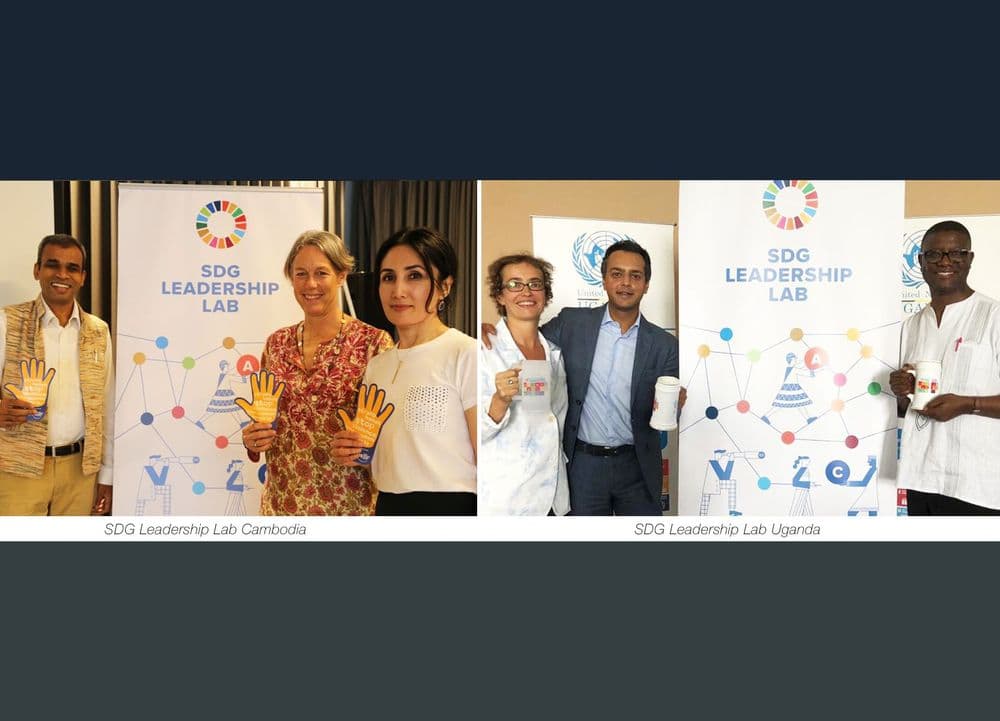The Presencing Institute is currently supporting two initiatives:
- the SDG (Sustainable Development Goals) Leadership Lab
- the UN Development Progam (UNDP)

SDG Leadership Lab
The Presencing Institute is supporting the UN Development Operations Coordination Office (UNDOCO) and the Country Teams of Cambodia and Uganda to pilot a Leadership Lab that aims to support national teams in developing the leadership and innovation capabilities needed for implementing the ambitious UN reform program, and for delivering on the Sustainable Development Goals. UNDOCO has provided exceptional leadership in introducing innovative approaches to systems transformation. The Presencing Institute teams delivered an initial workshop in Uganda in October, and in Cambodia in November.
The SDG Leadership Lab work is being led by Julie Arts and Martin Kalungu-Banda in Uganda with Sarmad Khan of UNDOCO,
and by Becky Buell and Manish Srivastava in Cambodia with Ifoda Abdurazakova of UNDOCO, with the support of Pauline Tamesis the UN Resident Coordinator.
Over 60 UN senior leaders from the two countries have engaged in the theory and practices of Theory U and Presencing, and will be moving into prototyping new initiatives in the new year.
UN Development Progam (UNDP)
The Presencing Institute has been asked to support a transformational leadership journey with the Resident Representatives of UNDP (United Nations Development Program). Starting in the new year, the Presencing Institute will support a leadership development event, in addition to which we will explore whether the UN might link to join the Societal Transformation Lab (STL) as a vehicle for their SDG Lab accelerator program, which will be rolled out early next year, starting with ten countries.



